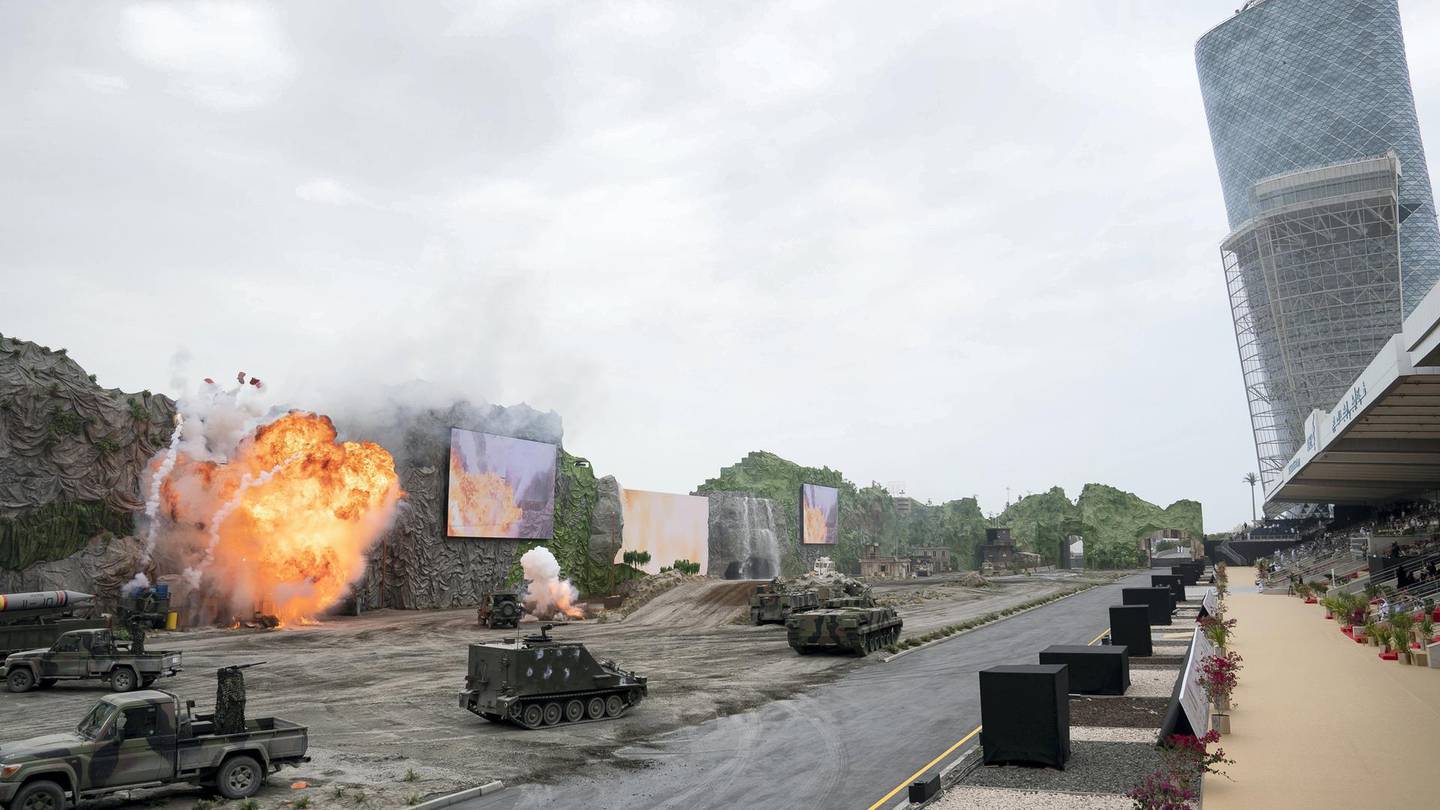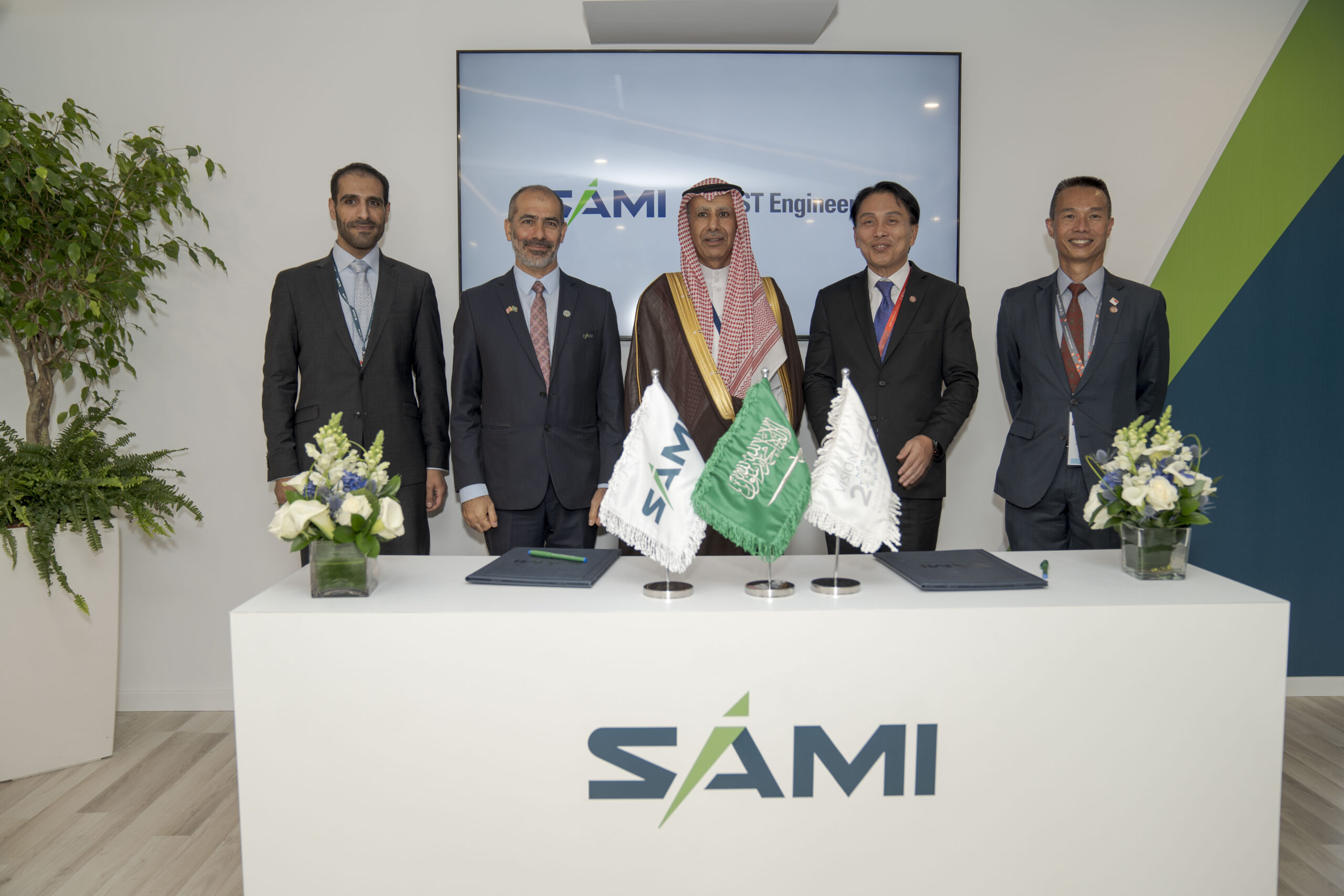The defence industries in Saudi Arabia and the United Arab Emirates are developing wide ranges of products, not only to meet sovereign defence needs but also for export.
The oil producing states of the Gulf Cooperation Council (GCC) have had a rollercoaster of a ride over the last few years. They have swung from financial surplus to deficit during the COVID period and are now looking at a return to healthier times. The Republic of Iran is still seen as the main regional threat, underlined by the ongoing proxy war in Yemen.
The Kingdom of Saudi Arabia (KSA) and the United Arab Emirates (UAE) have been most active in acquiring the widest range of defence equipment and technology. There is an ongoing drive, well underway, to modernise military equipment and systems across the GCC countries.
Increased military spending and modernisation have also led to cooperation and joint ventures between the defence manufacturers within the region and international defence companies. There has been a large focus on increasing science and technology research, in particular in unmanned systems as well as cybersecurity and information technology including artificial intelligence.
The plethora of acquisition imports across the Gulf have particularly been aimed at the procurement of combat aircraft such as Boeing F-15 Eagles, Eurofighter Typhoons, Dassault Rafale F4s and Lockheed Martin F-16 Fighting Falcons. In November 2020 the US State Department also approved a Foreign Military Sale (FMS) to the UAE of up to 50 Lockheed Martin F-35As. In the near term it is unlikely that these can be developed and manufactured as indigenous products within the Gulf region.
Land systems have also been on the shopping list, including air defence systems such as the Raytheon MIM-104 Patriot surface-to-air missile system and Lockheed Martin’s Terminal High Altitude Area Defense System (THAAD), the sale of which through FMS to the UAE was approved by the State Department in August 2022. There have been other acquisitions ranging from military vehicles of all types, helicopters, unmanned aerial vehicles (UAVs), naval vessels and small arms and ammunition.
However, both the governments of the KSA and UAE have instigated strategic visions to build up their indigenous defence industries, not only to supply their own military acquisitions, but to begin exporting their home grown products to other countries.
SAMI and EDGE
State owned Saudi Arabian Military Industries (SAMI), was launched in 2017 with the ambitious target of lessening the Kingdom’s reliance on foreign defence imports by becoming one of the world’s top 25 defence companies. By August 2022 it had achieved the position of 98th, fuelled by a reported 2,898 percent increase in revenue as reported at the end of 2021. SAMI’s stated goal is to localise over 50 percent of Saudi Arabia’s military spending by 2030.
The inaugural World Defense Show (WDS) staged from 6-9 March 2022, held at a purpose built exposition centre outside Riyadh, was notable not especially for product launches, but by the feverish activity to create joint ventures and partnerships, look for science and technology opportunities, and sign up suppliers – in general, really increase momentum and capability in the national defence sector.

During the event, SAMI management signed three separate financing agreements with three Saudi banks for $1.8 billion (SAR 7 billion). Announced as the first such arrangement of its kind, the financing was put in place to fund “future projects related to defence industries localisation, infrastructure development, acquisitions, and working capital financing.”
IDEX & NAVDEX
The United Arab Emirates (UAE) has its own well established defence exhibition. IDEX & NAVDEX 2023 is fast approaching and is being staged from 20-24 February at the Abu Dhabi National Exhibition Centre (ADNEC). Its strategic partner is the UAE’s state-owned EDGE Group which was formed in 2019 out of several existing organisations – principally Emirates Defence Industries Company (EDIC), Emirates Advanced Investments Group (EAIG), Tawazun Holding and others.

The organisation is structured into four cluster groups: Platforms and Systems; Missiles and Weapons; Electronic Warfare and Cyber Technologies; and lastly Trading and Mission Support. Within these there are over 25 individual companies manufacturing every kind of defence equipment from armoured vehicles (NIMR & Al JASOOR), loitering and guided munitions (ADASI), weapons and ammunition (CARACAL), to shipbuilding (ADSB) and much more. EDGE states that the intent of the Group as a whole is to build “a national defense industrial base, increasing in-country value, developing sovereign capabilities, and positioning the UAE as a serious global player with an advanced technology industry.”

At this year’s IDEX, EDGE Group will be focusing on autonomous systems, for both defensive and offensive use. According to an EDGE statement: “The incorporation of artificial intelligence (AI) is also increasing the efficiency and precision of these systems.” The organisation has developed over 20 new products in either autonomous systems or smart munitions since 2019. One of these, from ADASI, is Garmoosha, a tactical rotary UAV capably that can carry a payload of over 264 pounds (120kg) over 80 nautical miles (150km).
In terms of loitering munitions, systems such as the QX family use AI algorithms to determine their targeting capability. The QX-1, QX-2 and QX-3 are all vertical take-off and landing (VTOL) loitering munitions. The QX-4, QX-5 and QX-6 have much longer flight times (depending on payload, from 90 minutes up to between 7-16 hours (depending on payload).
EDGE also has designed the Rash family of fixed-wing precision guided munitions that rely on GPS INS navigation and which glide to their target. They can be armed with a motor round or Desert-Sting 16fragmentation warhead.
Hunter-2s are armed UAVs that are tube launched and have the ability to swarm when required, again using AI for initial surveillance and then attack.
EDGE is also researching the growing need for unmanned surface vehicles and (USVs) and unmanned underwater vehicles (UUVs), as requirements grown to support military maritime missions.

Both SAMI and the EDGE Group have been signing joint venture (JV) agreements with international partners. In the Farnborough Airshow in July last year, SAMI signed a JV with Singapore’s ST Engineering. At the signing, SAMI CEO Eng. Walid Abukhaled stated: “We are proud to undertake these new ventures with ST Engineering, who has consistently stood out as a global leader in the defence sector. With these new initiatives comes a bright opportunity to leverage supply chain capabilities and fortify our local position as the Kingdom drives towards defence sector autonomy in line with the objective of Vision 2030.”

SAMI also has JVs with several global primes such as Lockheed Martin, allowing collaborate over advanced technology solutions for the defence and security sectors, and Boeing, signed at the WDS in February 2022, under which work will be conducted a limited liability company “to provide maintenance, repair and overhaul and sustainment services for military rotary platforms currently operated in the Kingdom.”
Similarly EDGE Group companies such as Abu Dhabi Ship Building (ADSB) has a JV with French defence company Naval Group to collaborate on advanced technology solutions for the naval sector.
by Andrew Drwiega













